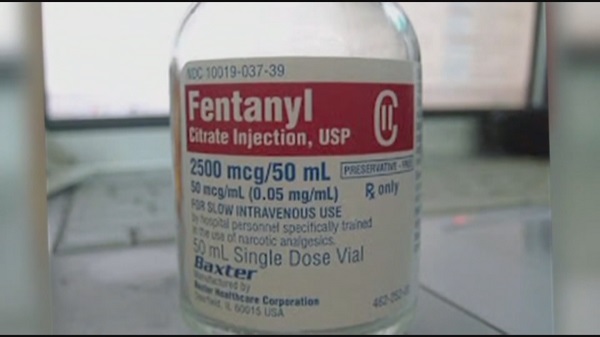
Florida House Bill 231, also known as Exposures of First Responders to Fentanyl, made headlines as it passed through a Senate Criminal Justice Committee meeting earlier this month. If approved, the bill would be effective Oct. 1, 2024.
It aims to make it a first-degree felony to “recklessly” expose a first responder to fentanyl or any fentanyl analogs, resulting in bodily injury.
However, medical experts and critics argue that the potential legislation may create unnecessary concerns and could have adverse effects on emergency healthcare.
According to bill sponsor Senator Jay Collin, R-Tampa, exposure to fentanyl is a significant problem, emphasizing the risks associated with the chemicals and aerosolization of the drug. He believes that individuals should be held accountable for such exposures. However, national medical experts offer a different perspective, asserting that the risk of first responders being exposed to fentanyl is extremely low.
Medical toxicologist Dr. Ryan Marino debunked the idea that fentanyl can be aerosolized or absorbed through the skin. He emphasized that fentanyl overdoses occur through ingestion, not inhalation and that the potential legislation could be based on misinformation.
The bill outlines criminal penalties for adults unlawfully possessing specified controlled substances and exposing first responders to such substances. However, the bill has faced criticism for potentially causing more harm than good, as it may discourage individuals from seeking emergency assistance during an overdose.
Courtney Bammick, a law enforcement officer from Tavares, shared her experience of exposure to fentanyl, describing difficulty breathing, lightheadedness, and blacking out. “ was lightheaded a little bit,” Bammick said.
Medical experts, however, challenge these symptoms as inconsistent with fentanyl exposure. While some symptoms align with an overdose, medical experts argue that panic attacks and lightheadedness may be responsible for other reported symptoms.
The bill’s language is under scrutiny, as it states that the only evidence needed to bring charges is if the first responder receives medical care without requiring a drug test to confirm an overdose or the presence of drugs. An amendment was added to provide a defense if the first responder acted outside the scope of their job and caused the overdose.
FAMU’s Police Department has voiced concern for the bill, believing it will be a “get out of jail card for perpetrators.” Field Training Officer Brandon Ceasor added that the bill will only protect first responders if they are acting within their ordinary limits of treatments.
“FAMU PD will have a departmental sit down with House Bill 231 in hand to educate officers on the legal implications,” Ceasor said.
The bill raises many questions and concerns but Ceasor said that FAMU PD will train its officers accordingly.
In a statement, Trevon Eppenger, a paramedic in Indiana, voiced support for the bill. He highlighted the emotional and fear-inducing experiences of being exposed to fentanyl and expressed disappointment in individuals who act carelessly.
“I agree with the bill, and I have been exposed to blood and a needle from a patient. The emotions and fear that run over your body is scary because you just never know the reaction to being exposed. The patients being careless is disappointing,” Eppenger said. Eppenger stressed the need to hold individuals accountable for their actions and hoped to see the bill applied universally.
HB 231 was added to the Judiciary Committee’s agenda last week.